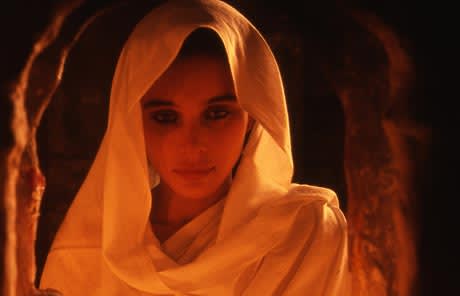There's the faint whiff of a '50s problem picture to Deepa Mehta's Water that keeps it from taking full flight. But that's not to say it doesn't get off the ground. The final panel in her "elemental" triptych is set in 1938 India and deals with an ashram for widows that is, cast-offs who are not allowed back into society according to Hindu tradition. The inmates begin with a feisty eight-year-old who can't understand why her mother doesn't visit and ends with a middle-aged "auntie" who accepts her fate with perverse gusto, but at the centre of the story is a young woman (Lisa Ray) who has a furtive romance with a forward-thinking man (John Abraham) to the shock and scandal of many. As befits a film with an issue, there's much declarative thesis-statement dialogue and a few pulled punches regarding the brutality of society. One must also regretfully note that this is the kind of movie where the male lead has glasses to show he's a smartie. But given the subject matter and the passion with which Mehta brings to the table, it's hard not to be moved. You can forgive the conventional filmmaking when you're presented with such a range of women trapped in a cultural straitjacket, and you're heartened by the invocation of the winds of change in the form of Gandhi's encroaching "Truth is God" mentality. It's not a perfect film, but a satisfying and necessary one. The two-disc special edition offers the theatrical Hindi version, as well as an unreleased English cut. Extras include a fairly decent director's commentary and an okay "making of" that detail the film's initial derailment by rioting religious conservatives, the promotional "electronic press kit," two typically shallow episodes of Scanning the Movies, a deleted scenes reel and the trailer. (Mongrel Media)
Water
Deepa Mehta

BY Travis Mackenzie HooverPublished Mar 1, 2006